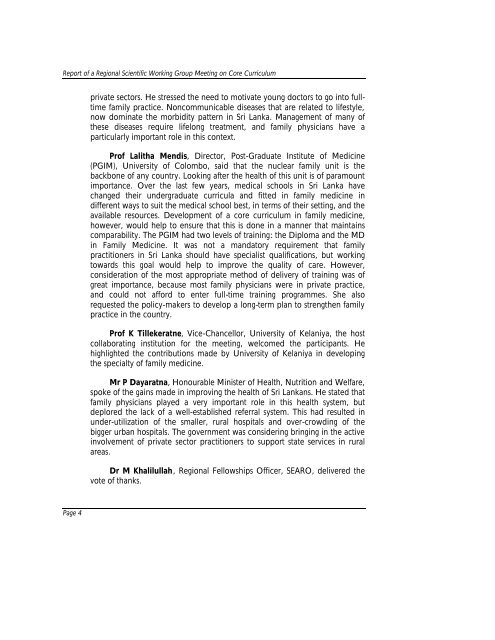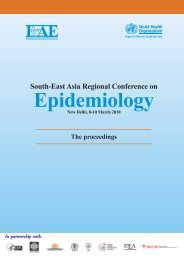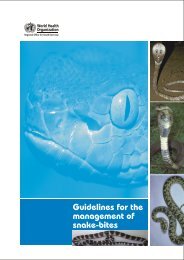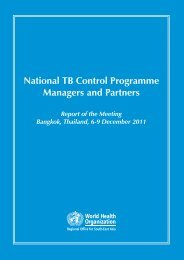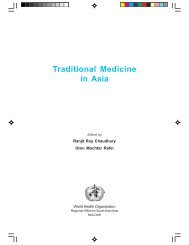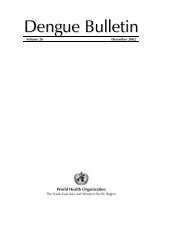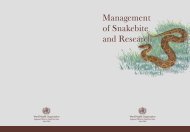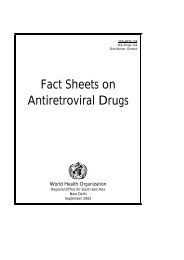Family Medicine
Family Medicine
Family Medicine
You also want an ePaper? Increase the reach of your titles
YUMPU automatically turns print PDFs into web optimized ePapers that Google loves.
Report of a Regional Scientific Working Group Meeting on Core Curriculum<br />
Page 4<br />
private sectors. He stressed the need to motivate young doctors to go into fulltime<br />
family practice. Noncommunicable diseases that are related to lifestyle,<br />
now dominate the morbidity pattern in Sri Lanka. Management of many of<br />
these diseases require lifelong treatment, and family physicians have a<br />
particularly important role in this context.<br />
Prof Lalitha Mendis, Director, Post-Graduate Institute of <strong>Medicine</strong><br />
(PGIM), University of Colombo, said that the nuclear family unit is the<br />
backbone of any country. Looking after the health of this unit is of paramount<br />
importance. Over the last few years, medical schools in Sri Lanka have<br />
changed their undergraduate curricula and fitted in family medicine in<br />
different ways to suit the medical school best, in terms of their setting, and the<br />
available resources. Development of a core curriculum in family medicine,<br />
however, would help to ensure that this is done in a manner that maintains<br />
comparability. The PGIM had two levels of training: the Diploma and the MD<br />
in <strong>Family</strong> <strong>Medicine</strong>. It was not a mandatory requirement that family<br />
practitioners in Sri Lanka should have specialist qualifications, but working<br />
towards this goal would help to improve the quality of care. However,<br />
consideration of the most appropriate method of delivery of training was of<br />
great importance, because most family physicians were in private practice,<br />
and could not afford to enter full-time training programmes. She also<br />
requested the policy-makers to develop a long-term plan to strengthen family<br />
practice in the country.<br />
Prof K Tillekeratne, Vice-Chancellor, University of Kelaniya, the host<br />
collaborating institution for the meeting, welcomed the participants. He<br />
highlighted the contributions made by University of Kelaniya in developing<br />
the specialty of family medicine.<br />
Mr P Dayaratna, Honourable Minister of Health, Nutrition and Welfare,<br />
spoke of the gains made in improving the health of Sri Lankans. He stated that<br />
family physicians played a very important role in this health system, but<br />
deplored the lack of a well-established referral system. This had resulted in<br />
under-utilization of the smaller, rural hospitals and over-crowding of the<br />
bigger urban hospitals. The government was considering bringing in the active<br />
involvement of private sector practitioners to support state services in rural<br />
areas.<br />
Dr M Khalilullah, Regional Fellowships Officer, SEARO, delivered the<br />
vote of thanks.


